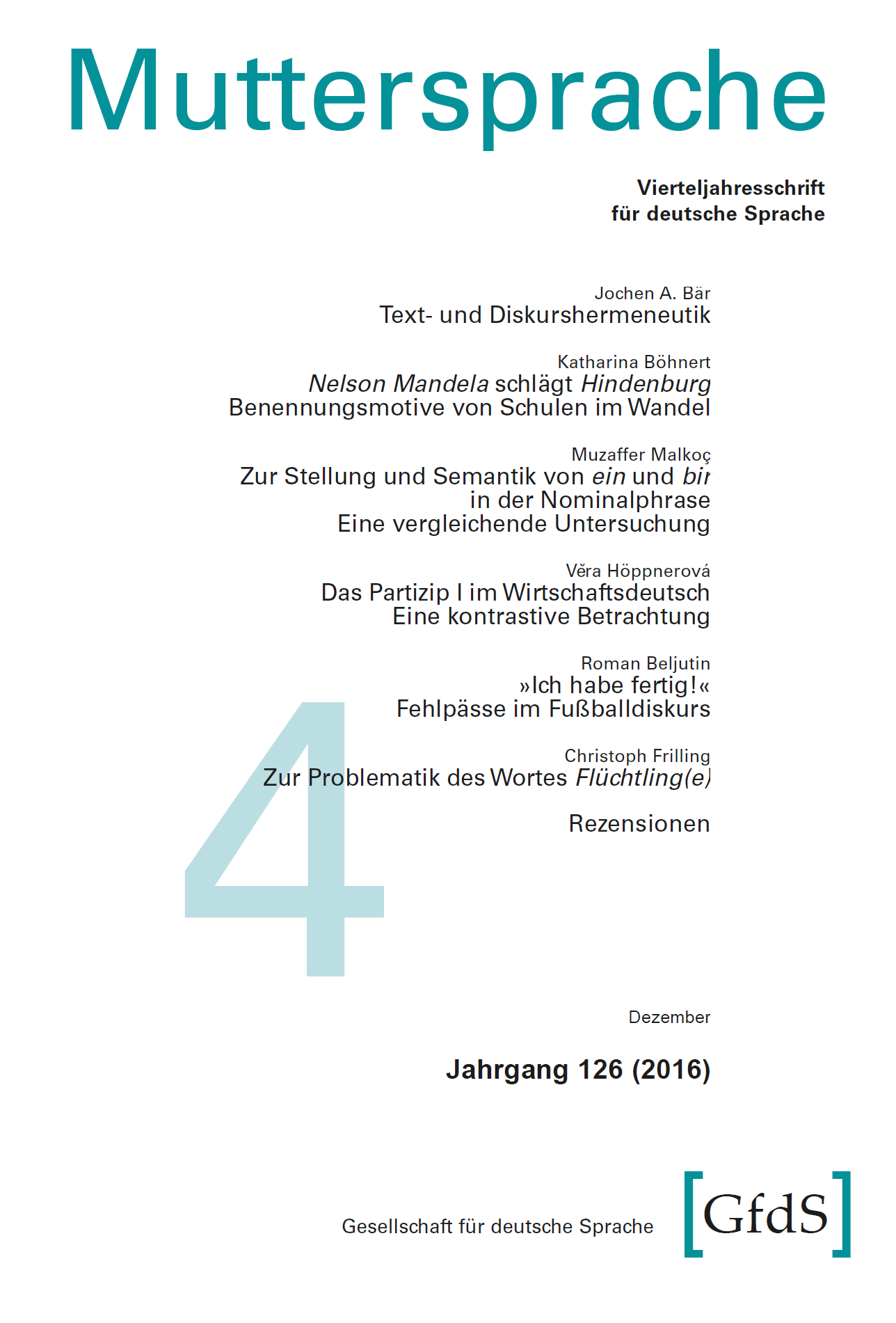Artikeldetails
Muzaffer Malkoç: Zur Stellung und Semantik von ein und bir in der Nominalphrase. Eine vergleichende Untersuchung (MU)

Produkttyp: Beitrag (Zeitschrift)
Autor(in): Muzaffer Malkoç
Titel: Zur Stellung und Semantik von ein und bir in der Nominalphrase. Eine vergleichende Untersuchung
Publikation in: Muttersprache, 126. Jahrgang, Heft 4
Seiten: 314–324 (11 Seiten)
Erschienen: 15.12.2016
Abstract: siehe unten

Preis: 4,90 € inkl. MwSt.
(Download)
Abstract
In dieser Arbeit haben wir versucht, das deutsche Wort ein mit dem türkischen Zahlwort bir zu vergleichen. Das deutsche Wort ein steht positionell auf jeden Fall vor einem Substantiv (ein Kleid) oder einer Phrase (ein altes Kleid) und bedeutet je nach Situation eine Menge oder eine Unbestimmtheit. Dagegen ist die Stellung des türkischen bir nicht festgelegt, sondern je nach Redesituation variabel. Als Zahladjektiv steht das türkische Wort bir am Anfang der Phrase und bedeutet in der Regel eine Anzahl: bir eski elbise ›ein Altkleid‹. Als unbestimmtes Adjektiv hingegen wird es zwischen Adjektiv und Substantiv gestellt, wobei es eine Unbestimmtheit eski bir elbise ›ein altes Kleid‹ ausdrückt.
In this paper, we have tried to compare the German word ein to the Turkish word bir. Positionally, the German word ein is placed before a noun (a dress) or a phrase (an old dress) and means a number or an indefiniteness depending on the situation. In contrast, the position of the Turkish word bir is not fixed but may vary in context. As a numerical adjective, the Turkish word bir stands at the beginning of the phrase and it usually means a number: bir eski elbise ›one old dress‹. As indefinite adjective, however, it is placed between the adjective and the noun, and it expresses an indefiniteness eski bir elbise ›an old dress‹.